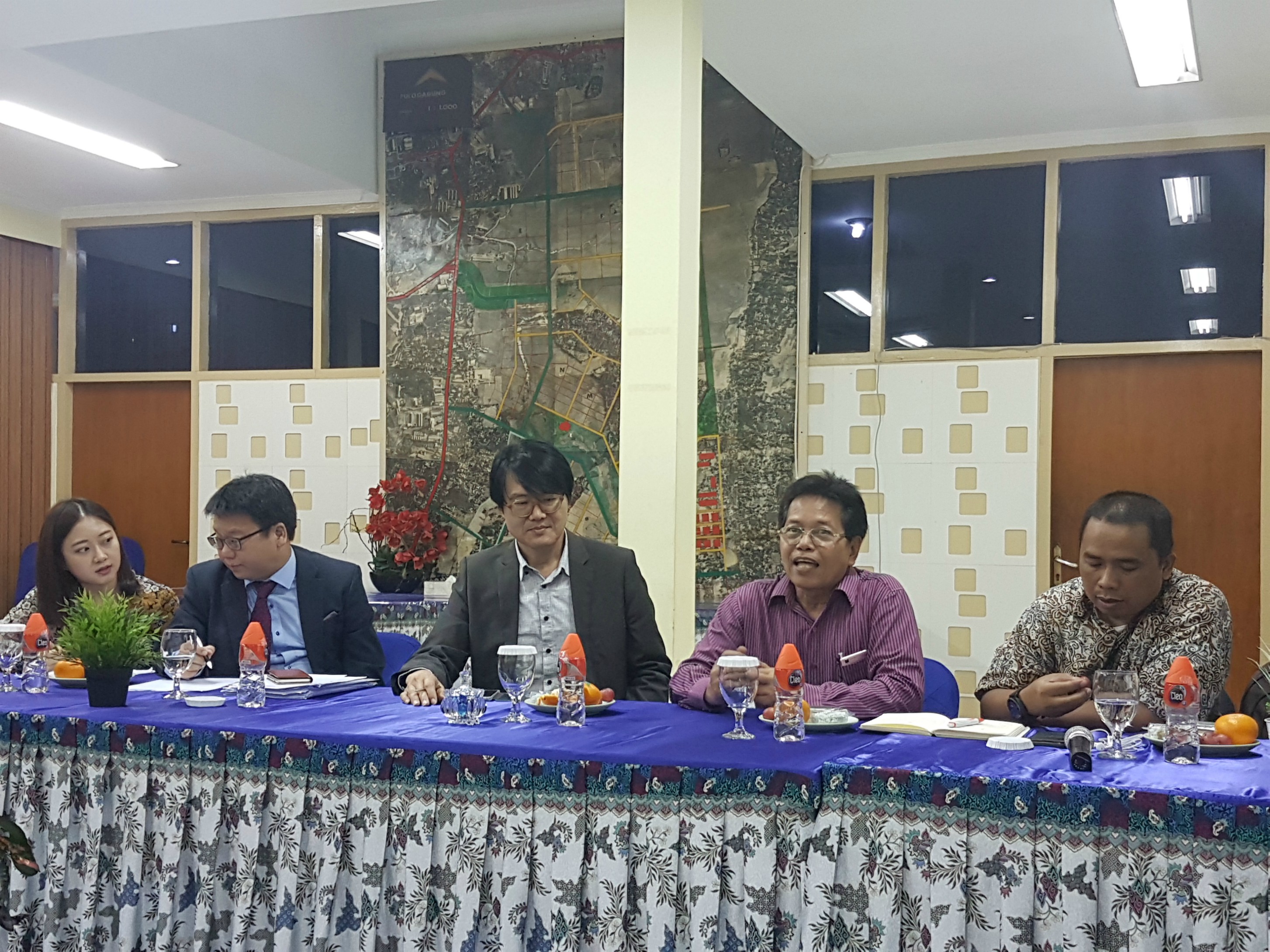
Planning for Indonesia’s first int’l halal hub advances with Korean support
Photo: Kim Joo Cheong, principal researcher at Korea Testing Laboratory (second from left), Cho Yeun Haeng, director at Korea Testing Laboratory (middle), sitting next to Ahmad Fauzie, business development head at Jakarta Industrial Estate Pulogadung. Photo taken December 20, 2016 at Jakarta Industrial Estate Pulogadung, Jakarta, Indonesia. Photo courtesy Jakarta Industrial Estate Pulogadung.
Jakarta – Jakarta Industrial Estate Pulogadung (JIEP) and Indonesia Port Corporations (Pelindo II) took a step forward in the building of the country’s first international halal hub, after Korea Testing Laboratory (KTL) agreed to give as a grant equipment to support the hub’s technical facilities, Ahmad Fauzie, JIEP business development head told Salaam Gateway.
KTL’s grant will outfit the hub’s technical laboratory that will test for the halal quality assurance and compliance of products entering the site.
According to Fauzie, JIEP considers KTL’s technical capabilities and experience superior to that of similar Indonesian companies.
JIEP visited KTL’s laboratory in Seoul last year as part of a study to establish the Halal Hub’s facilities.
Testing, assessment and quality certification company KTL is a subsidiary of the Korea Institute of Machinery and Materials that falls under South Korea’s Ministry of Science, ICT and Future Planning.
ISLAMIC ECONOMY HUB
Other than halal food products, JIEP’s hub will also host a halal culinary centre and an organic urban farm.
According to Fauzie, it will also showcase other Islamic economy sectors such as modest fashion, and a Shariah-compliant financial centre to be integrated with the planned Islamic Special Economic Zone at Jakarta Industrial Estate that is slated for completion by the end of this year.
The hub will also host a national creative industry and training centre.
There are currently 30 companies housed in the 500-hectare JIEP Halal Hub that already comply with Shariah requirements, said Fauzie.
It includes cosmetics producer Sariayu, the brand owned by Indonesia’s famous Marta Tilaar spa chain.
Fauzie hopes that more halal-certified products will be handled in JIEP by the end of 2019 when it will be obligatory for all halal products to be certified and labelled, as mandated by the government.
HUB, PORT PROJECTS
JIEP Halal Hub is a transit area that ensures incoming and outgoing products are handled in compliance with Shariah requirements.
Investment into its establishment will run into trillions of Indonesian rupiah, according to Fauzie, who declined to give an exact figure.
JIEP and Pelindo II signed a memorandum of understanding last August to jointly develop the halal hub.
According to Fauzie, work on fully outfitting the hub will start after Eid al Fitr that will fall around June 25.
It is targeted to start operations next year.
The hub will integrate the halal port and halal zone, and will be run by a halal logistics and supply chain management system.
Plans for JIEP’s Halal Hub came after Pelindo II, Multi Terminal Indonesia, and Majelis Ulama Indonesia signed in February 2016 a memorandum of understanding to allocate six hectares of Jakarta’s largest sea port, Tanjung Priok, into a halal port.
The Tanjung Priok project’s initial outlay and operating expenses were projected to run around 2 billion Indonesian rupiah ($152,000) to convert the current facilities.
The work was initially scheduled for completion last year but is still ongoing.
($1 = 13,290 Indonesian rupiah, 1 trillion Indonesia rupiah = $75,244,545 est)
© SalaamGateway.com 2017 All Rights Reserved
